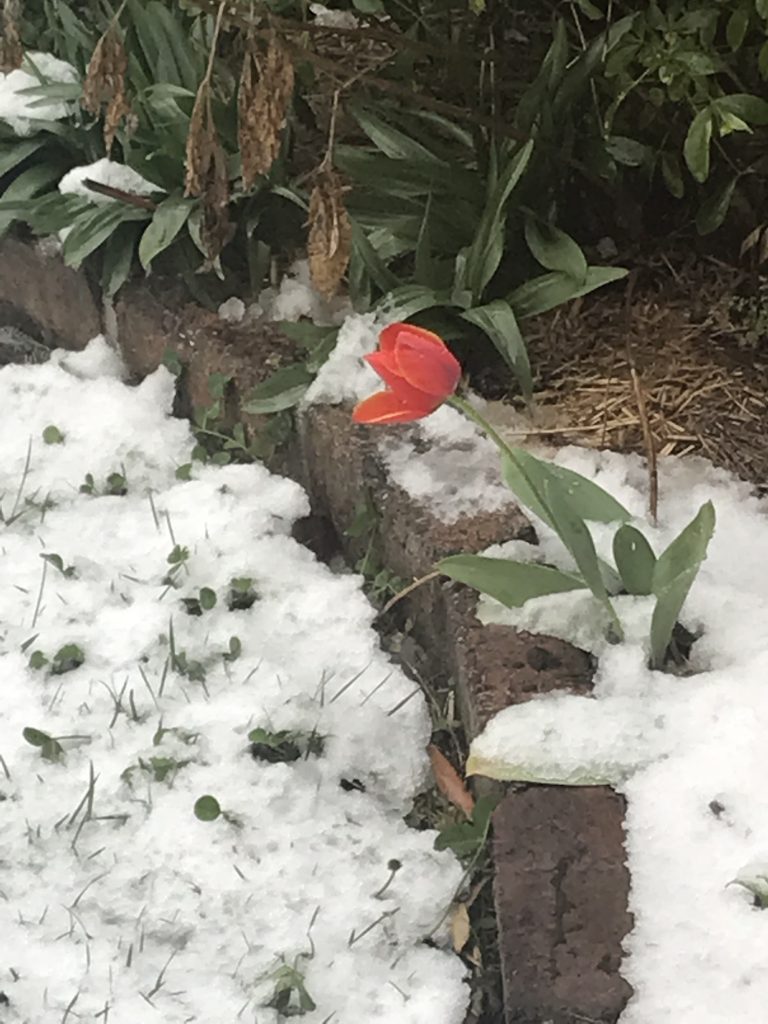‘She was born with the winter in her bones.’ Kate Atkinson
Aurelia, thin and angular, pulled her socks to her knees. She wore them over thick stockings for extra warmth under drill trousers. Work ready trousers so she need not worry over unwanted holes in the fabric.
Her mother had raised her to work, beginning as a four-year-old and first-born girl in a family where babies arrived year after year. She could change a nappy and prop a bottle on her baby brother’s chest as she folded clothes with her spare hand. She learned fast to keep order and during this time came to resent the mess piling around them in this overfull house of babies and neglect.
Whatever happened to Aurelia when she was ten I cannot say but just like that, her ability to remember stopped one day overnight. One day she was a child who could recite her times tables, wipe bench tops clean, set out knives and forks in correct order, enough for seven, clear dishes, wash and stack them away. The next day she stumbled over every movement. She dropped plates, smashed in pieces on the floor and could not remember where the dustpan and brush lived to sweep up the shards.
School became a nightmare, a fog of ignorance and the nuns reported Aurelia must be lacking something upstairs. Best she leaves school when she hits fourteen, they said. She could still be useful at home.
Only Aurelia was no longer useful at home. She was a burden on her parents, a child who weighed them down with her slowness.
A disease had crept into Aurelia’s bones. Some maladies of mind that left her grasping for ideas. It squashed her memory and the slower she became the more her mother pondered her fate. It was never a matter of love.
Love was not a commodity within this family of many heads, legs and arms all pistoning in unison to get through the tasks of life, the cooking, the eating, the washing, the cleaning. The walk to school, the books to read, the tasks to be completed outside in the woodshed, the gathering of firewood for the older boys, and stitching of holes in fabric for the girls below Aurelia who had not yet lost their minds.
Aurelia’s mother feared this might turn out to be the fate of all her daughters. One after the other when they came of age, nine or ten, overnight these girls would shift their weight in the world and disappear.
It had happened to Aurelia’s mother, too, only she managed to hold onto a few shreds of memory, enough to get her past the end of her school days at fourteen, enough to rote learn the rudiments of house care, enough to find a husband. A burly tall man who was not unkind but who did not know any more than Aurelia’s mother that small children need love if they are to burst into bright stars that glow warm. If they are to grow into minds that can think and feel, that can run, hop and skip like John and Betty in the first-grade readers.
Aurelia’s mother knew there had been other possibilities for her, but once she married and the first seeds of a baby swelled inside, there was no turning back.
Then there was Aurelia. And her disappearance.
Her mother then imagined a Hansel and Gretel story for her daughter. She, the wicked stepmother, for no actual mother would abandon her child, however forlorn. And she cajoled her burly husband into taking Aurelia to the government house where cast off children were processed. Leaving her there.
Aurelia in a fog in the great hall at the centre of a crumbling mansion where bureaucrats took details of children lined up like ten pins one after the other ready for life to bowl them over.
But Aurelia had no details to report. Aurelia could not remember. She was born with the winter already in her bones and although she wore clothes that kept her warm enough, thick stockings, socks to her knees over drill trousers and all under a great coat for the out of doors, her insides were laced over in memory loss.
Aurelia was the raw forgotten part of her mother’s life. Her mother knew this and tried to rid herself of the unknown and unremembered by casting her daughter aside.
But Aurelia would rise again like the characters in Roman myths who once abandoned on hillsides as babies, refused to die.
Let us hope Aurelia meets a similar fate. We cannot abandon her to words on the page, to the life of our imaginations, to the skin of words and of language. Aurelia is our memory of all that is forgotten. She needs us to hold her tight.

